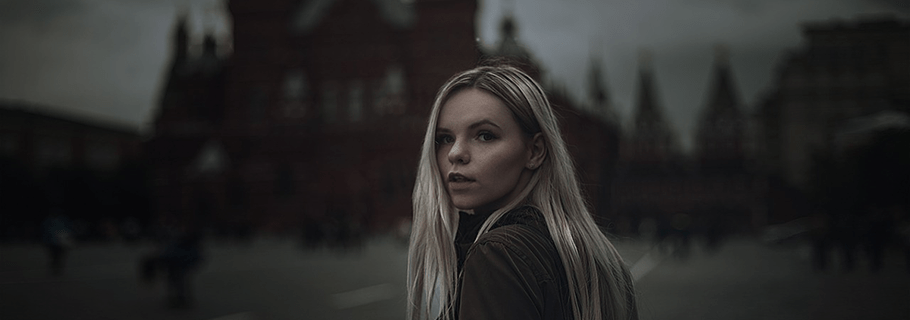Aileen and I have developed a shared passion for photography, especially for landscape photography. A little while ago, she began to follow various landscape photographers on Instagram and made an interesting observation: almost all of them are men. She began to wonder why, so asked Google and found an interesting answer. In the first place, landscape photography tends to involve lugging heavy equipment far into the wilderness, a task that men typically find easier than women. Second, it often involves doing this alone, and many women judge that too great a risk. The sad fact is, men have the privilege of roaming far and wide at much less personal risk than women.
I was recently reading an article written by a woman who has a passion for running, and in it, Brianne Kohl tells how her hobby has introduced her to risks. She tells of being accosted by men and avoiding assault only because her heroic dog got involved and took a chunk out of an assailant. She tells of the fear she feels when she runs down country roads, and has a man slow down to chat or to ask a question. But there is one anecdote that I found particularly sad — the one where she tells of seeing a “creep” in the woods ahead. Here’s how she describes it:
I spot a man standing alone, off the trail just inside the tree line. I see him because the sunlight shifts in the trees. He is wearing all black in the summer. Long sleeves, long dark pants. Black ball cap. I can’t tell his age or even see clearly what he is doing. I cannot imagine a reason he could have to be there.
“Not today,” I mutter and head back toward the parking lot. I see a woman coming my way. She’s in a dress so I guess she’s out for a walk on her lunch break.
“Creep in the woods just ahead,” I say as I run past her.
“Thanks,” she says, and turns around, too.
Some days, boys, we just don’t have the energy.
Her description of the scene took me back many years, back to when I was a teenager working at Starbucks. I was the only male on staff there, and often heard from the women I worked with about some of their fears. The shop was in an out-of-the-way part of a shopping centre, and they felt some measure of fear as they walked to the restaurant in the very early morning, or when they walked away from it very late at night. They were always aware of the possibility that they might be victimized.
These women, out of fear of being victimized, had unwittingly victimized someone else.
One day they began to talk about “The Stalker.” They described a man whom they often saw in or about the store, and whom they were convinced was a predator. They began to warn one another about him, and to alert one another to his presence. As they described him, I felt a sense of disquiet, as if I knew exactly who they meant. And sure enough, one day he walked into the store when I was there, and I learned I had been correct. He was a good friend to my family, and one who suffered from some significant cognitive disabilities. He was undoubtedly the kindest, gentlest, least dangerous guy in town, but, because of his disabilities, lacked social skills and some social graces. Now my colleagues were treating this guy poorly, speaking ill of him, and even missing the opportunity to befriend an especially endearing individual. These women, out of fear of being victimized, had unwittingly victimized someone else.
There is a young man in our neighborhood today who is known for being odd. People consider him a creep, they consider him a weirdo, they probably warn their children about him. He wanders the neighborhood mumbling quietly to himself and looking around with unfocused eyes. He is not “normal.” Yet at a glance I can tell not only that he has a cognitive disability, but even what cognitive disability he has. He’s no creep, no weirdo, and no danger to children. He just bears the burden of a genetic abnormality. But he, too, has been made a victim out of a fear of victimization.
So why do I write about all this? I write about it because my mind was full of it this morning as I went for my early-morning walk. Once again, I saw a woman appear to take a wide, deliberate swerve around me as we came toward one another in the darkness. Once again, I didn’t blame her and was not offended. As I have said before, “I get to [walk] confidently in the darkness, without backward glances, without ears pricked. But from all I hear, all I know, all I’ve read, their fear is well-earned and their questions legitimate. I have the privilege they do not, a privilege I take for granted.” (See Are You Going to Hurt Me?)
Sin begets sin and victimization begets victimization.
But there’s more to it than that. Life continues to give me opportunities to reflect on the abhorrent nature of sin. Sin is so ugly and so terrible that it always leaves a trail of pain and awfulness in its wake. Sin begets sin and victimization begets victimization. I think back to the “creep” that Kohl saw in the woods, and can’t help but wonder whether he was a potential victimizer or a victim himself. Perhaps he was a pervert eager to act out. Perhaps he was a violent offender waiting for a victim. Or perhaps he was a sweet young man who wouldn’t hurt a fly but who simply lacks the capacity to be “normal.” The anguish of this ugly world is that she can’t know, and the stakes are too high to find out. This is one more reason to cry out with faith, “Maranatha! Come, Lord Jesus!”










